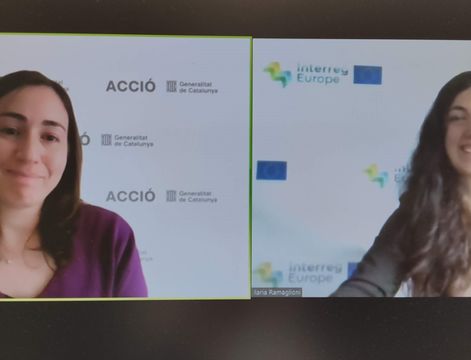
RaiSE final dissemination event
The conference to highlight the results and achievements of the project took place online on 10 March 2021
RaiSE brings together six pro-active regions and one advisory partner to address the common challenge of enhancing competitiveness of social enterprises. According to the Social Business Initiative of the European Commission, social enterprises:
Social enterprises are drivers of social change
The potential of social enterprises to generate inclusive growth and promote more and better jobs is widely recognised and RaiSE project partners will learn from each other to improve their regions business support policies.
Seven partners, with varied policy contexts, unite efforts to improve together the support that each region gives to social enterprises. The following activities will be undertaken during the first part of the project (2'5 years):
Thanks to this learning process, every region will develop an Action Plan at the end of phase 1, that should:
During the second part of the project (2 years) Action Plans will be implemented and monitored.
€1,720,552.00
SME competitiveness
Established in 2008 by the Government of Catalonia, the Social Third Sector Support Plan is a comprehensive programme to support the development of the social economy in Catalonia. Its main objectives are:
These objectives are channelled through 4 main measures. Measure II of the policy instrument will be addressed: Measures oriented to the provision of training and advisory services to the social enterprises within the social economy.
The current policy instrument provides only basic training and business advisory services through two separate programmes managed by the Lead Partner and the Directorate-General for the Social Economy. Business support services have proven to be insufficient, as services need to be adapted to the needs of social enterprises, which vary from mainstream small and medium size enterprises due to their special features. There is also a need for better coordination between main regional development organisations in the provision of business support to social enterprises. The European Regional Development Fund Operational Programme (TO3) is not concerned because there is no special mention to social enterprises, neither ACCIÓ is the competent authority as it focuses on financial instruments for social and medium size enterprises.
This policy instrument aims at promoting access to external funding and employment potential in case of enterprises launched by youth and job seekers as well as social enterprises. As a result of the developments the enterprises – including startups and social enterprises – will strengthen in a sustainable way.
The current policy instrument provides access to only financial instruments in case of the combined programs, and does not include grants to social enterprises. Moreover, there is no tailored financial instrument accessible to promote business support services adapted to the unique characteristics of social enterprises. Mainstream business acceleration practices (e.g. grants addressing mentoring – coaching, export promotion services) should be developed through combined or hybrid financial product (credit + non-refundable support + guarantee) to boost the social enterprises landscape. As Lead Partner of SOCIAL-SEEDS (INTERREG EUROPE Programme 1st call), partner 2 is improving dedicated financial instruments that will follow social enterprises business cycles and foster their growth. Contrary, within RaiSE, the focus of policy improvements is on preparing the financial portfolio through covering social enterprises acceleration services that is currently not part of the spectrum of financial instruments.
European Regional Development Fund Regional Operational Programme 2014-2020 Investment Priority 3 “Small and Medium Size Enterprises Support, Promotion and Capability Development” will be addressed. The policy instrument aims to support the capacity-building of small and medium size enterprises to exhibit regional, national and international markets, and to get better engaged in innovation-chains (including social innovation).
More specifically, the policy instrument will stimulate small and medium size enterprises:
Currently the policy instrument is discriminative as it only addresses mainstream enterprises.
However, social enterprises are also key policymaking tool (due to their dual missions, special business model construction, skills requirements, etc…) to foster sustainability and economic development. Moreover, in accordance with the European Commission Social Business Initiative, social enterprises are also considered as enterprises. Evidence shows that there is increasing demand for dedicated business support services addressed to social enterprises.
Additionally, the policy improvements will provide structural change as social enterprises, in practice, do not fall under same department of mainstream small and medium enterprises. Consequently, better coordination and improved governance model among public institutions are needed to provide business support to the enterprises. This improvement will result in a radical change in how social enterprises are treated and supported by policies.
The ten year national social enterprise strategy sets out Scotland’s shared ambitions for social enterprises jointly developed with the sector. It focuses on 3 main priorities:
It provides a framework for action over the next decade and supports the Government’s strategic objective of creating a wealthier and fairer Scotland, driving greater inclusive growth and economic prosperity.
This strategy, aligned with the Internationalising Social Enterprises Strategy (2016), will build on the supportive ecosystem within Scotland, guiding social enterprises from start up to scaleable growth and international potential. It will be delivered and measured through robust 3-year action plans characterised by co-production and collaboration. The RaiSE programme will provide: momentum and context for improved delivery and support infrastructure; knowledge sharing across regions with similar aims and challenges; opportunities to stimulate an interest in driving international ambitions and support for a growing social enterprise sector.
These will be developed into a series of action plans spanning the decade, the first of which will be published in 2017. The support, sustainability and competitiveness of social enterprises is critical to achieving the objectives of Scotland’s wider Economic Strategy (2015) which focuses on the mutually supportive goals of increasing competitiveness and tackling inequality. Social enterprise infrastructure and development is key to the four priorities underpinning Scotland’s approach to sustainable growth: Inclusive Growth, Investment, Innovation and Internationalisation.
European Social Fund is aimed at valorising intellectual capital, promoting innovation and entrepreneurship capacity, fostering social cohesion and quality of community services. Axis 1 Employment - Priority investment 8.5 Change management capacity of employees, enterprises and entrepreneurs foreseen actions addressed to social enterprises improving their strategic and technical skills necessary to manage re-organization, development, technological innovation and strategic positioning on current and new markets.
Furthermore Axis 1 includes horizontal actions dedicated to social innovation and transnational cooperation aimed at supporting the competitiveness of social enterprises such as: facilitating access to finance, strengthening of management skills and networking capacity with universities and research centers, training for managers of no-profit organizations to promote their role in the social economy; and other support services for social enterprises. The current policy instrument is only setting directions on what to achieve as final outcome and support measures need to be improved taking as reference similar business support measures for social and medium size enterprises but taking into account the specific needs of social enterprises. Deep dive in interregional good practices will contribute to this process.
The policy instrument addresses key priority areas such as entrepreneurship and innovation. Among other priorities, it aims to increase the number of enterprises and make them grow in national and international markets. However, it lacks specific focus on social enterprises and how they can be a part of the regional development as well.
A new regional strategy for the period 2017-25 is under development. This will point out future challenges and strategic areas to work with. The strategy needs to be concretized into work plans and action plans, where social enterprises specific business support needs need to be taken into account along with improved governance between business support agencies.
Region Örebro County implements these key priority areas of the policy instrument through the main business support agencies and organisations: ALMI, for mainstream social and medium size enterprises and Coompanion, which also include support for the social economy in general. Efforts made so far have focused on promoting the creation of social enterprises, addressing barriers faced at early stages of their life-cycle but not much on supporting their consolidation and grow. There is also a need for better coordination among business support agencies.
Region Örebro County has to strengthen and improve the link from the regional development strategy down to social enterprises in order to visualize the importance and potential of social enterprises in terms of regional growth and development, improving the business support policy. The Action Plan produced in this project could be that link.

The conference to highlight the results and achievements of the project took place online on 10 March 2021
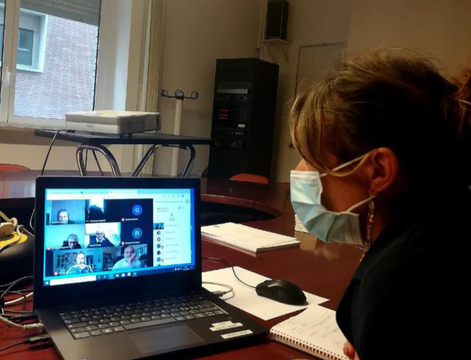
After difficult months due to the COVID emergency crisis, on 13 October 2020 ART-ER met the stakeholder group of RaiSE project
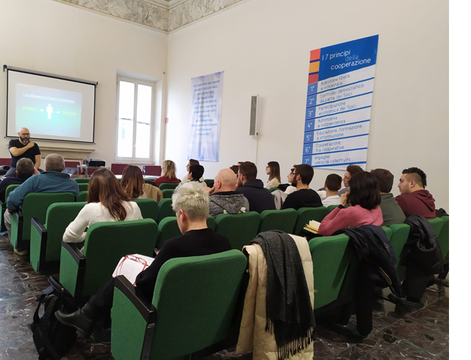
Interview with IRECOOP on Cooperative social innovation, one of the 22 training projects approved
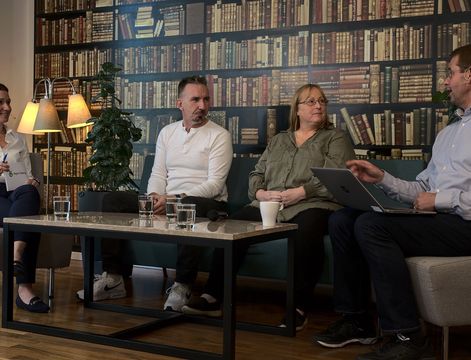
On 10 September 2020, Region Örebro County organized a conference on social enterprises
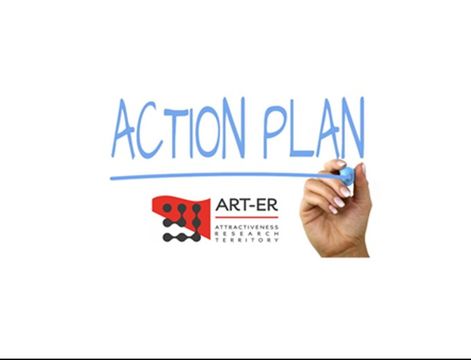
The Emilia-Romagna Region, ART-ER and the main stakeholders met on January 10, 2020 to share opinions and activities related to the first action of the Plan.

In Emilia-Romagna a regional call for social enterprises.

The new work has been published by ART-ER within the European Interreg Europe project RaiSE.
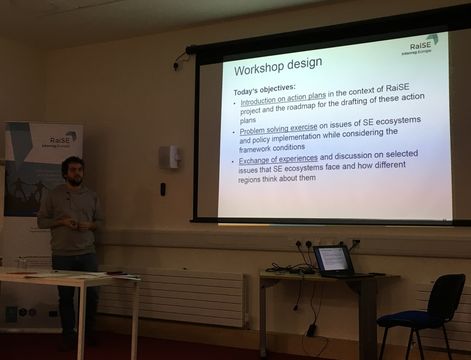
A special and useful workshop on the Action Plans preparation took place in Westport interregional meeting.
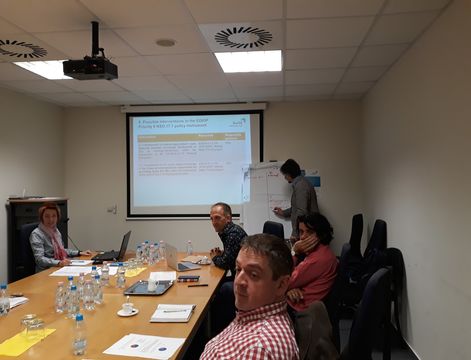
The Hungarian stakeholder group for RaiSE celebrated two meetings last semester.
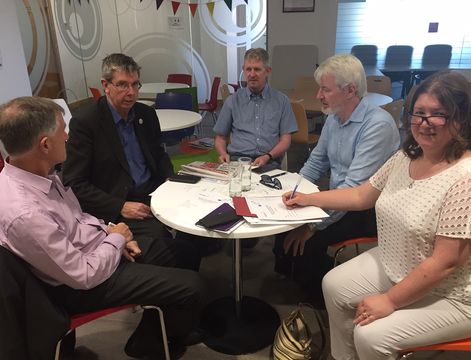
The Irish stakeholder group for RaiSE celebrated the fifth meeting on 26 June 2019 in Dublin.